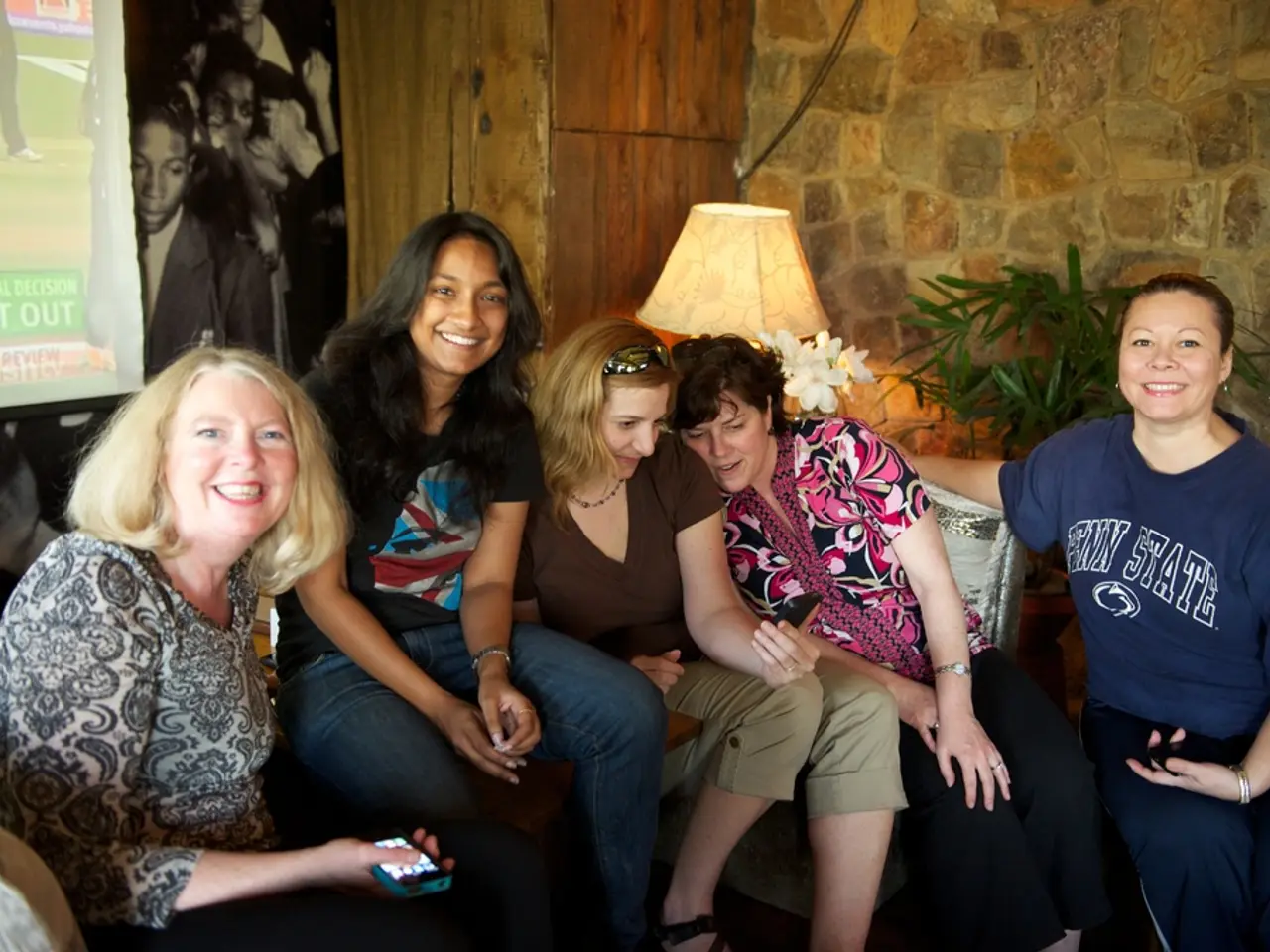Young adults, or Generation Z, are adopting a laid-back lifestyle approach instead of the fast-paced, competitive culture known as 'hustle culture'.
In the fast-paced cities of Dubai and Abu Dhabi, Gen Z is embracing a shift towards slow living as a means of self-care and balance. This movement, driven by the desire for presence, emotional awareness, and sustainable success, is a conscious rejection of the glorification of constant productivity that characterizes hustle culture.
After a year in the corporate world, Kashyap, a product manager, realized the negative impact of constant busyness, feeling drained after a week of long hours, skipped meals, and restless nights. This experience is not unique, as many young people are starting to question the traditional workaholic behaviors that have long been seen as professional and dedicated.
Working late and skipping lunch breaks is no longer the norm for younger generations. Instead, they are adopting mindful rituals such as starting the day with a screen-free cup of tea or chai, incorporating incense and journaling, and spending time in nature. These rituals serve as grounding moments for presence and emotional tuning, prioritizing self-care over traditional workaholic behaviors.
Harley Sabater, a healthcare professional living in Abu Dhabi, has noticed a shift towards slow living among Gen Z, particularly in the UAE. Sabater notes that gardening brings a sense of calm and mindfulness, and a single Monstera can spark joy, connection, and confidence.
Sunaira Sohail, a 21-year-old PR assistant, starts her day with a leisurely cup of chai to feel grounded before work. Sunidhi Kashyap, a 25-year-old product manager, also starts her day with tea, incense, and journaling for her five minutes of quiet time. These brief moments of mindfulness can make a significant difference in managing stress and promoting mental wellness.
Alhemeiri, a clinical psychologist, has noticed more interest in therapy, mindfulness, and mental health among young people in the UAE. This shift in mindset, as Gen Z turns inward, builds awareness, and finds ways to manage stress, is reflected in the Reward Gateway 2024 Workplace Wellbeing report. The report shows that 18 to 24-year-olds face the highest financial stress, feel most disconnected at work, and are likeliest to consider a job change.
In response to these challenges, workplaces are evolving to include wellness breaks and quiet spaces for employees. Many young people prioritize flexible, supportive environments over a higher salary, with 44% preferring well-being over a 10% raise. This shift towards self-care and balance is a testament to Gen Z's resilience and their commitment to prioritizing their mental, physical, and emotional well-being.
Younger generations are no longer willing to put up with the mental, physical, and emotional toll that hustle culture takes on their well-being. Instead, they are embracing slow living as an act of self-care and balance, valuing presence, emotional awareness, and sustainable success over traditional notions of career climbing through relentless effort.
Sources:
- The National News
- Reward Gateway
- The trend of slow living, characterized by presence, emotional awareness, and sustainable success, is gaining traction among Gen Z in the business world, even in cities like Dubai and Abu Dhabi.
- As more young people question the long-held workaholic behaviours, they are adopting mindful rituals such as starting the day with a screen-free cup of tea or chai, practicing incense, journaling, and spending time in nature for self-care.
- In the lifestyle sphere, fashion and beauty, food and drink, home and garden, and relationships are all being reconsidered through the lens of health and wellness, promoting mental health and personal growth.
- Healthcare professionals in the UAE, like Harley Sabater, have observed a growing interest in self-care among Gen Z, with activities like gardening offering a sense of calm and mindfulness.
- In the field of education and self-development, there is a noticeable increase in the demand for therapy, mindfulness, and mental health resources, with clinical psychologists like Alhemeiri seeing a rise in Gen Z seeking these services.
- The Reward Gateway 2024 Workplace Wellbeing report underscores these changes, with findings indicating that younger generations prioritize well-being over a higher salary and are open to job changes due to feelings of disconnection and financial stress.
- Embracing slow living, Gen Z is pushing for workplaces to provide wellness breaks, quiet spaces, and flexible, supportive environments, demonstrating their commitment to their mental, physical, and emotional well-being.
- The World News is abuzz with stories about Gen Z's resilience and their desire for balance, as they challenge the glorification of constant productivity and embracing self-care, presence, and sustainable success instead.




